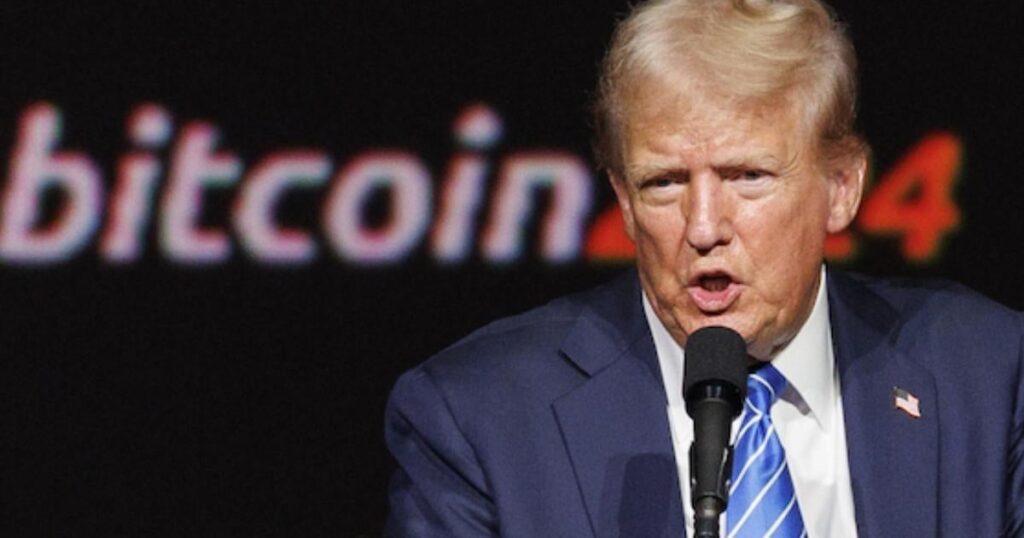Bitcoin is one of the most watched and highly volatile assets in the world. With its value often shifting based on global events, political changes can create ripples, significantly impacting its market behavior. On January 20, 2025, as Donald Trump takes the presidential oath, many investors and cryptocurrency enthusiasts are asking, “What does the inauguration mean for Bitcoin?”
This blog explores the possible scenarios for Bitcoin’s market performance post-Trump’s inauguration. We’ll analyze historical trends, expert insights, and the relationship between political shifts and cryptocurrency. Whether you’re a seasoned investor or just starting with Bitcoin, this guide will provide clarity and help you prepare for what lies ahead.
How Politics Impacts Bitcoin Markets
Bitcoin, as a decentralized financial asset, has no direct ties to governments or political systems. However, global events like elections and policy announcements influence public sentiment, investor confidence, and market trends.
Key Reasons Why Political Events Affect Bitcoin
- Market Confidence and Uncertainty
Political decisions, economic policies, and global tensions often increase uncertainty, driving investors to hedge their assets. Bitcoin, often seen as “digital gold,” becomes a popular choice for hedging during such times.
- Regulatory Concerns
The cryptocurrency market often reacts quickly to any potential announcements about regulations. A government signaling support could drive prices higher, while stricter rules or restrictions could lead to panic selling.
- USD Fluctuations
Since Bitcoin is often traded in USD, policy changes impacting the U.S. dollar can directly influence its market. A weak dollar typically strengthens Bitcoin’s appeal.
Now, as Donald Trump prepares to take office, these factors take center stage. What could this mean for Bitcoin in the days following January 20?
Historical Trends of Bitcoin During Political Shifts
Examining past trends can provide insight into Bitcoin’s potential movements after Trump’s inauguration.
1. The 2016 Trump Election
When Trump won the U.S. presidential election in November 2016, Bitcoin saw a notable uptick in trading volume. Investors showed immediate interest in Bitcoin, turning to it as a “safe haven” amidst fears of market instability. By mid-2017, Bitcoin had grown exponentially, breaching the $4,000 mark for the first time.
2. The Biden Administration Transition (2021)
On January 20, 2021, during Joe Biden’s inauguration, Bitcoin’s price stood at approximately $35,000. While Biden’s regulatory stance created some uncertainty among crypto investors, the massive growth in institutional investment during 2021 led Bitcoin to hit an all-time high of nearly $69,000 by November of that year.
3. Patterns During Macroeconomic Events
During global economic shifts, Bitcoin has often acted as a hedge against traditional markets. For instance, during the COVID-19 pandemic in 2020, massive government stimulus packages led to fears of inflation, driving Bitcoin’s price to surge over 300% that year.
These historical patterns suggest Bitcoin could see unpredictable market movements leading up to and following the inauguration.
Potential Bitcoin Scenarios Post-January 20
Forecasting Bitcoin movements isn’t an exact science, but based on historical data and expert insights, here are three potential scenarios to consider:
Scenario 1: Market Optimism Fuels Bitcoin Growth
If Trump’s inauguration is accompanied by policies that favor investments or encourage innovation in technology, including blockchain and cryptocurrency, Bitcoin’s price will likely surge. Statements signaling leniency in crypto regulation, or the adoption of crypto/blockchain initiatives, would further heighten market optimism.
Scenario 2: Regulation-Related Fears Lead to Volatility
Trump’s administration could strengthen its stance on cryptocurrency regulation. For example, if there are whispers of stricter policies, increased taxation, or surveillance, Bitcoin could experience immediate price drops due to market panic. However, in the long term, clear regulations often stabilize Bitcoin markets.
Scenario 3: External Economic Factors Drive Movement
Economic factors related to inflation, interest rates, or changes in monetary policy could also influence Bitcoin. For instance, if Trump announces aggressive fiscal plans and the USD weakens as a result, investors may flock to Bitcoin as a hedge.
How Investors Can Prepare
Uncertainty is inevitable in political transitions, but there are strategies to manage Bitcoin investments effectively.
1. Stay Updated on Policy News
Follow updates on Trump’s stance toward cryptocurrency regulations, taxation, and blockchain adoption initiatives. Reliable information is crucial for making informed decisions.
2. Diversify Your Portfolio
No matter how promising Bitcoin looks, diversifying your cryptocurrency portfolio can reduce risks. Consider stablecoins or altcoins that complement Bitcoin’s performance.
3. Avoid Impulse Trading
The market may experience sudden price movements on and after January 20. Resist reacting impulsively; instead, analyze patterns and base decisions on data.
4. Use Dollar-Cost Averaging (DCA)
Given Bitcoin’s volatility, the dollar-cost averaging approach ensures you invest steadily rather than all at once, minimizing the impact of sudden price fluctuations.
5. Monitor Economic Indicators
Keep an eye on the U.S. dollar index, inflation rates, and global cryptocurrency market sentiments. These factors will provide a clearer picture of Bitcoin’s trajectory.
What Experts Are Saying About Bitcoin’s Future
Industry experts have mixed predictions about Bitcoin’s behavior post-inauguration:
- Anthony Scaramucci, founder of SkyBridge Capital, recently remarked that Trump’s return to the White House could push Bitcoin toward mainstream adoption, especially if financial institutions feel reassured by clearer regulations.
- Cathie Wood, CEO of ARK Invest, emphasized that the long-term potential of Bitcoin as a hedge against inflation shouldn’t be ignored, regardless of short-term volatility after political events.
- Peter Schiff, a known Bitcoin skeptic, warned that stricter U.S. government policies could lead to market corrections, urging investors to prepare for potential turbulence.
The general consensus, however, suggests the period immediately following January 20 could set the tone for Bitcoin’s performance throughout 2025.
Why Staying Ahead Matters
Bitcoin’s price movements can be swift and sudden, especially during political events like an inauguration. The best way to stay ahead is by staying informed and having a well-structured investment strategy. Investors who can adapt quickly to these shifts are best positioned to capitalize on opportunities and minimize risks.
If you’re looking to strengthen your strategy with expert insights, subscribe to our newsletter for weekly updates on Bitcoin trends and analysis.



